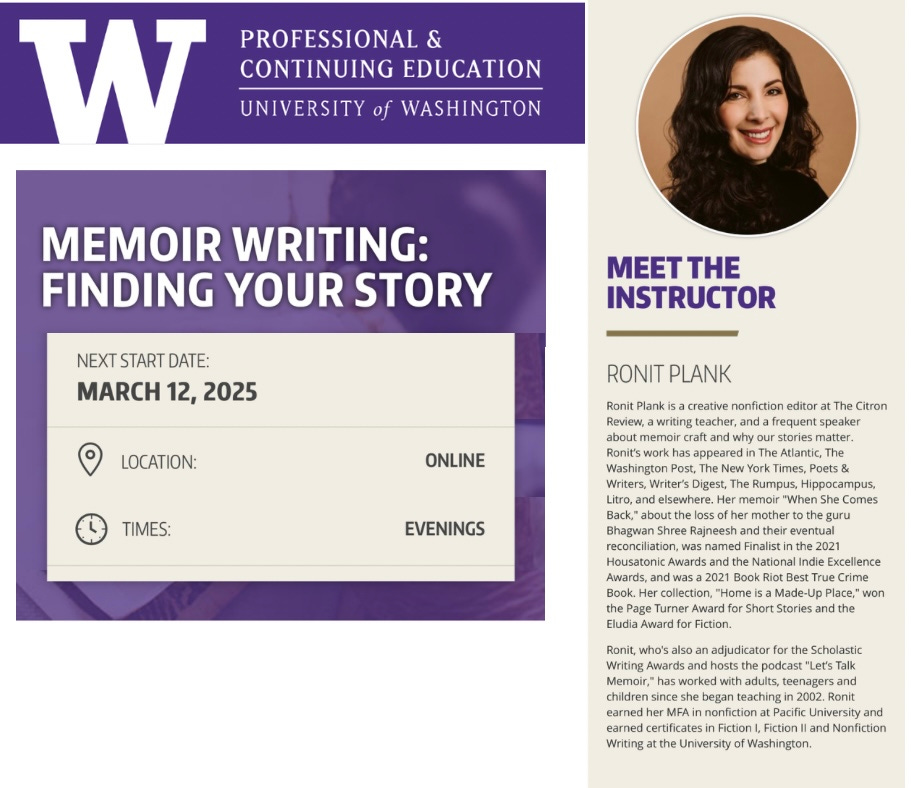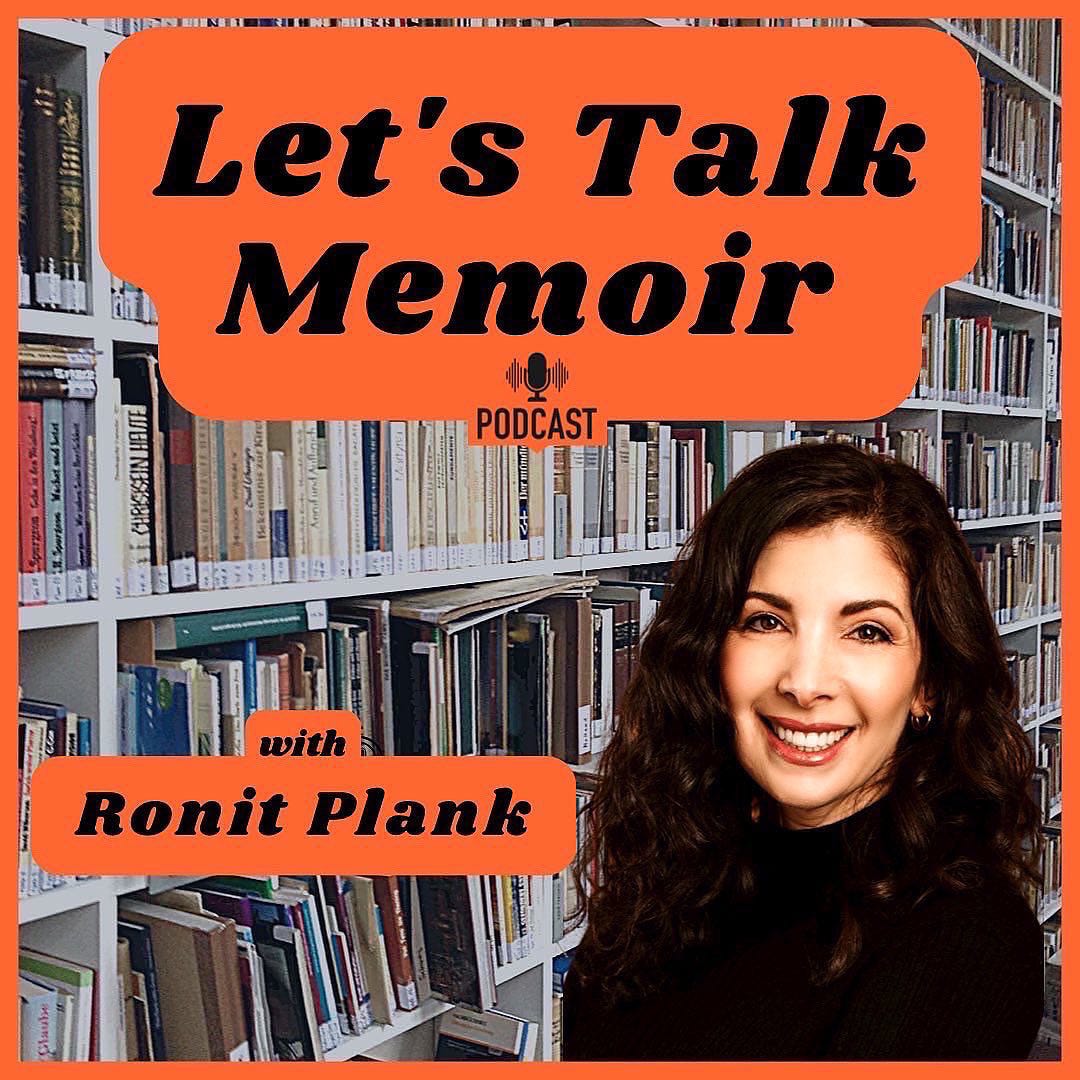Memoir is not going anywhere anytime soon
Some provisions for your winter writing
Memoir is Not Going Anywhere Anytime Soon
I try to share memoir writing and publishing tidbits when I hear news that will help memoirists with their craft and also their outlook about this genre which agents and writers sometimes describe as hard to sell.
Recently, my friend
published a post on the Brevity Blog in response to an article that came out about the sorry state of memoir gloomily titled “Memoirs Are Almost Impossible to Sell” which referenced her and ’s earlier article on the memoir publishing landscape. Describing an article about an article referencing yet another article feels a little like a written Matroyshka doll, so if you are wondering about the original article by Friedman and Williams, or the gloomy one, read the most recent one I first referenced (I just Matroyshka’d you again) by Williams entitled, “Are Memoirs “Impossible to Sell”? Only If Narrowly Defined”.In it she writes, that yes, while it’s true that fewer memoirs get published by Big Five publishing houses, “many more are published by small literary and university presses, and many of those deals aren’t reported to Publisher’s Marketplace, the source we used for our statistics.”
Sure, any writer can look at publishing stats and decide not to finish their book because selling and making a profit off their manuscripts isn’t a guarantee, but if that were the only reason we write, I don’t think many of us would do it all. As far as I’m concerned, writing a memoir is such a deeply personal, nuanced, and challenging project, one that demands such honesty and courage, that by the time you finish and revise it, if it’s important to you, you’ll be sure to find a way to get that book into the world. Now whether that’s via a Big Five publishing house, a small independent press, a hybrid press, or through self-publishing has a lot to do with what your goals are and how long you might want to wait until your memoir becomes a bonafide book.
If you’re feeling unsure or wobbly about your memoir ultimately finding a place, rest assured, you’re not alone. When we’re writing and when we’re searching for a home for our work we all have moments of panic. Acknowledging that worry is healthy. When you can find some time to reflect, you can answer the following questions in a journal or a doc you keep in a place you can easily find the next time you experience doubt. I suggest you light a candle, make yourself a cup of coffee or tea, and breathe until you feel yourself center. Ask yourself:
Why am I writing a memoir?
Why do I want to share it with the world?
What does success with my memoir project look like?
Remembering why you began writing in the first place and what you want to accomplish in the next 3 to 6 months, the next year, and the next 3 years can help ground you. This isn’t a race, you are not alone, and when you feel uncertain, try writing about it. You might discover more material you can shape into part of your memoir or a perhaps a stand-alone piece.
My upcoming 10-week memoir course and my two new essays
Registration is now open for my 10-week memoir course with University of Washington’s Continuum program. Memoir Writing: Finding Your Story will be online Wednesday nights from 6:00-9:00 PT beginning March 12, 2025. More information and registration is here.
I am honored to have new work out in two magazines on Substack, both essays, each different in its approach.
“The Shadow in Me”, a lyric piece in
about the parts of my history that shaped me and also saved me. Read it in Open Secrets Magazine here. Thank you to editor .“Worth Staying For”, a more traditional essay about my final months living in Manhattan working as an actress and telemarketer in my twenties and grappling with whether or not to end a disappointing relationship. Read it on Sneaker Wave here. Thank you to the
editors.
Memoir Craft Q and A
I like to answer memoir craft and publishing questions in each newsletter and am happy to address this one from writer Gina Capobianco:
“Can you share how to navigate moving back and forth between the past and the present in memoir? I'm wondering about the present me as narrator and past me as character.”
This question is so important and discovering and finding an effective balance between the character-you and narrator-you can unlock your memoir in crucial ways. This interplay is key to discovering what’s at stake in your narrative and also helps make your story more compelling. Too little character and the reader may not feel “there” in your shoes. Too little narrator and the reader may not understand why what you’re showing them matters.
In my very first episode of Let’s Talk Memoir I got to interview my mentor
about her two memoirs Live Through This and I Am a Stranger Here Myself. When we talked about the latter she shared that in writing about her father she needed to ask herself the question, “why is it so hard between us”, and that she kept asking that throughout her writing process.In order to help tease out answers she needed to circle back “to that idea of who is the character in the memoir.” The character in I Am a Stranger Here Myself, Debra said, “is this man’s daughter” and she needed to find out why they act the way they do with each other. She went on to explain:
“Only the narrator can sort that out. The narrator who's lived past the moment is looking back on it. It's not just two people in the room, the young Debra, and her father, but also the narrator Debra, who's looking at that, kind of standing in the doorway watching it, saying, wow, look at how these two people are behaving with each other. It's about the dynamic between the two characters.”
Debra Gwartney - Let’s Talk Memoir: Who Am ”I”?--Character vs. Narrator, Mar 15, 2022
She suggests that you sit down with a memoir and three highlighters and use one color for when the character-I is speaking, one for when the narrator-I is speaking, and one for where there is setting and background context.
Let’s look how this works in an excerpt from Animal Bodies by
. I’ll use regular font for the character-I and bold for the narrator-I:“I walked into the bedroom we had shared: a way to even the score, making sure everyone lost. I shouldn't have done it, but did it just the same. And now it's another point on the plot of my life, one I get to choose how to assign meaning to: I wanted to stop pretending to make it work with David. And that did it.
I never told David about spending the night with my ex, but I imagine he suspected it. And with the power of hindsight, I can see David would have left anyway. That snowy afternoon when David said, "I love you, but I have to leave," I nodded. It was inevitable but not surprising—a boring end to a narrative we had once believed held so much promise. He kissed me on the forehead. I had that feeling of being outside of my body, watching him talk at me, our breath foggy in the winter air, my inner voice saying, "Thank you for leaving."…
My now-voice says, What the fuck was up with that condescending forehead kiss? And I wish I had been the one brave enough to come out and ask him to leave. Instead, I said, "What about Tiffany's wedding next week? I RSVP'd for two."
"You're joking" he said, though he could see I wasn't, so he shook his head, saying, "You'll just have to go alone."
I recommend you try this exercise with memoirs you have read and studied, especially those you feel you can learn from. Finding your character and narrator voice and effectively toggling between them takes practice. As you get more comfortable allowing each to speak, you will discover new facets to your story and what remains unsolved in you. Later, after you’ve taken your manuscript through revisions, your trusted readers or editors will help you make decisions about the balance you’ve struck and questions they might still have about both the character-you and narrator-you.
On the podcast
I’ve got three more Let’s Talk Memoir episodes lined up for December so you can tune in through the end of the year while wrapping and cooking and taking breaks from family.
Over the next three Tuesdays look for conversations about writing short and experimentally, our love-hate relationship with social media and publishing, and tapping into our bodies and centering ourselves when generating material.
Winter is coming
Before I let you go I’d like to leave you with words to help bolster you as the days shorten and the nights grow longer. I wrote the following in my upcoming editorial CNF letter for The Citron Review’s winter issue out later this month, and want to also share it here:
In her memoir Motherland, Venezuelan journalist Paula Ramón explores the collapse of her homeland and the loss of her family as she’s known it. Her ongoing and painful sense of displacement colors every aspect of her life and her relationships. The ruptures are at once untenable and inescapable, which she illustrates with this quote from Leonardo Padura who writes in The Man Who Loved Dogs, “What else can we the shipwrecked talk about but the sea?”
Writers, especially writers of memoir, know what it is to pore over their lived experience to better understand and find kernels of meaning in what has occurred. Maybe winter, especially in regions where temperatures plunge and the ground hardens beneath us, where our windows remain shut for weeks and maybe months on end, makes ignoring what gnaws at us impossible. What better way to alchemize what has shaped us than turn it into art and words, allow ourselves some forward motion from what has been trapped within, maybe even hint at change.
As this year wanes, I hope that the new one begins gently enough to allow you space to breath and create, reflect and find moments of calm. Remember that there are myriad ways to share what we have experienced, and that every time we do, we bring into being a valuable rendering of our truth.
Thank you so much for being here. If you found this newsletter helpful, feel free to share it with writers who might also appreciate Let’s Talk Memoir.
Until January,
Ronit






There’s so much here that rings true for me, and your articulation “…writing a memoir is such a deeply personal, nuanced, and challenging project, one that demands such honesty and courage,…” speaks to the value of embarking on the journey. Had to share this post!
Interesting idea! I’ll definitely try this. Thanks!